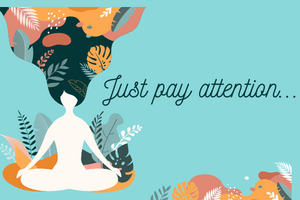When we’re looking for a quick fix to switch off from the world, a lie down with a sleep meditation may do the trick. But this is not Mindfulness at its most powerful.
In Mindfulness, we neither fight for a mind empty of thoughts nor just passively switch off and ‘relax’. Instead, we are working constantly to notice everything our minds are picking up on, from sensations such as sounds and the breath to internal stimuli such as emotions and thoughts. When noticing these we take a step back, neither pushing away nor pursuing the chain reaction that so often follows in our mind. The reality, though, is that we won’t manage this for very long at all before realising we have become distracted – and we then berate ourselves for this.
Here’s the thing though: even by noticing this judgement we are doing mindfulness. And with this observation comes the realisation that all there is to be achieved by beating ourselves up about our wandering minds is a delay in returning to mindful awareness. So, we notice the distraction and notice the judgement. Now for the real workout: however long it took us to do this, the best and most courageous thing we can do now and every time we become distracted is to return to this breath, with no consideration given to the last one or to the next.
Mindfulness-based meditation does not have to be relaxing in itself: it is a workout for the mind. Nevertheless, just as a feeling of relaxation may result from a physical workout, so too is it a benefit of Mindfulness. But again, just as with physical exercise, by training our muscle of observation and self-compassion we build up skills and benefits which extend far beyond immediate relaxation. We learn to respond rather than react to difficult situations. We learn to be more emotionally present with the people we care most about. We learn that thoughts are not facts and can be allowed to pass by without engaging in a wrestling match with them. We learn to be more self-aware of our boundaries and limits, and kind to ourselves when considering them.
As we learn to sit and observe our thoughts, sensations, and emotions for longer periods of time, Mindfulness becomes far more than a magical tool for falling asleep: it is an exercise in waking up.
Written by Joshua Stevens, third year student, 3.11.21
If you’d like to comment on or contribute to a podcast or article for Student Services, email us at StudentServicesWeb@kent.ac.uk.
Check out further articles on Support and Wellbeing.

